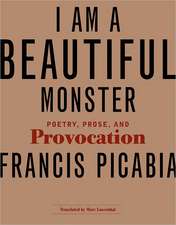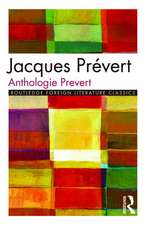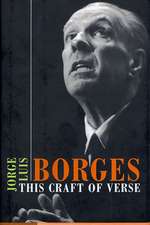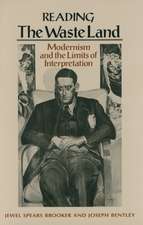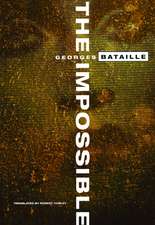Walking: A Novella
Autor Thomas Bernhard Traducere de Kenneth J. Northcott Cuvânt înainte de Brian Evensonen Limba Engleză Paperback – 15 oct 2015
Thomas Bernhard is “one of the masters of contemporary European fiction” (George Steiner); “one of the century’s most gifted writers” (Newsday); “a virtuoso of rancor and rage” (Bookforum). And although he is favorably compared with Franz Kafka, Samuel Beckett, and Robert Musil, it is only in recent years that he has gained a devoted cult following in America.
A powerful, compact novella, Walking provides a perfect introduction to the absurd, dark, and uncommonly comic world of Bernhard, showing a preoccupation with themes—illness and madness, isolation, tragic friendships—that would obsess Bernhard throughout his career. Walking records the conversations of the unnamed narrator and his friend Oehler while they walk, discussing anything that comes to mind but always circling back to their mutual friend Karrer, who has gone irrevocably mad. Perhaps the most overtly philosophical work in Bernhard’s highly philosophical oeuvre, Walking provides a penetrating meditation on the impossibility of truly thinking.
A powerful, compact novella, Walking provides a perfect introduction to the absurd, dark, and uncommonly comic world of Bernhard, showing a preoccupation with themes—illness and madness, isolation, tragic friendships—that would obsess Bernhard throughout his career. Walking records the conversations of the unnamed narrator and his friend Oehler while they walk, discussing anything that comes to mind but always circling back to their mutual friend Karrer, who has gone irrevocably mad. Perhaps the most overtly philosophical work in Bernhard’s highly philosophical oeuvre, Walking provides a penetrating meditation on the impossibility of truly thinking.
Preț: 95.21 lei
Nou
Puncte Express: 143
Preț estimativ în valută:
18.22€ • 18.97$ • 15.40£
18.22€ • 18.97$ • 15.40£
Carte disponibilă
Livrare economică 15 februarie-01 martie
Livrare express 01-07 februarie pentru 33.09 lei
Preluare comenzi: 021 569.72.76
Specificații
ISBN-13: 9780226311043
ISBN-10: 022631104X
Pagini: 104
Dimensiuni: 140 x 216 x 10 mm
Greutate: 0.09 kg
Ediția:1
Editura: University of Chicago Press
Colecția University of Chicago Press
ISBN-10: 022631104X
Pagini: 104
Dimensiuni: 140 x 216 x 10 mm
Greutate: 0.09 kg
Ediția:1
Editura: University of Chicago Press
Colecția University of Chicago Press
Notă biografică
Thomas Bernhard (1931-89) grew up in Salzburg and Vienna, where he studied music. In 1957 he began a second career as a playwright, poet, and novelist. He went on to win many of the most prestigious literary prizes of Europe (including the Austrian State Prize, the Bremen and Brüchner prizes, and Le Prix Séguier), became one of the most widely admired writers of his generation, and insisted at his death that none of his works be published in Austria for seventy years, a provision later repealed by his half-brother. Kenneth J. Northcott is professor emeritus of German at the University of Chicago. He has translated a number of books for the University of Chicago Press.
Recenzii
“The writing is . . . repetitive, but the repetition eventually seduces the reader into the strange nature of the friends’ discussion. Despite its difficulties, the writing is beautiful; even if you don’t enjoy weighty writing or agree with Bernhard’s sometimes heavy-handed views on society, the prose can be appreciated for is beauty alone.”
“[#1 of the 10 funniest books]. . . . Bernhard’s oeuvre is the longest, funniest joke in literature. If I were being honest this list would probably consist of nine Bernhard books and maybe one by Beckett. But I’ll go with this novella for its extremely long, hysterically funny description of Karrer’s mental breakdown in a clothing store, when he tries to convince a salesman, at some length, that the pants they are selling, when held up to the light, display a number of thin spots that can only be attributed to the use of shoddy materials, materials which Karrer insists (for page after page after page) must be what he refers to as ‘Czechoslovakian rejects.’”
“Walking is indispensible Bernhard, a novella that can go toe to toe with his finest novels. At a brisk eighty-six pages, it’s also a great entry point for readers who haven’t yet made time for Bernhard. All of his obsessions and stylistic mannerisms—the things that make Bernhard Bernhard—are on full display here. . . . As is usual with Bernhard, the ceaseless pessimism is actually very comic, and as Oehler and the narrator continue to state positions on the slow death of intellectualism and thinking, the narrative ramps toward one of the greatest moments in all of literature, . . . eighteen pages of brutal hilarity.”
“What is extraordinary about Bernhard is that his relentless pessimism never seems open to ridicule; his world is so powerfully imagined that it can seem to surround you like little else in literature.”
“Our precious individual lives, we discover, are only a symptom of a swirling, uncentered excess of thought in which we lose our direction and identity. We lose ourselves into madness, we find, not at the end of reason’s course but in the infinity between two beats of reason’s clock. It is Bernhard’s genius to be able to make this revelation darkly, but giddily, humorous. Kenneth J. Northcott’s translation brilliantly renders the drama of this piece, which reads like a soliloquy revealing the complex inner tides constituting an individual psyche. . . . Uncompromising.”
“In Walking, we see burgeoning signs of one of the most distinct literary voices of the twentieth century. . . . A small treasure.”
“It is with Walking, worth the price of admission, that we understand how Bernhard’s writing, a writing constantly struggling against, is a consistent, desperate, humorous, bitter, and all-too-human attempt to keep from going under.”
Descriere
Thomas Bernhard is “one of the masters of contemporary European fiction” (George Steiner); “one of the century’s most gifted writers” (Newsday); “a virtuoso of rancor and rage” (Bookforum). And although he is favorably compared with Franz Kafka, Samuel Beckett, and Robert Musil, it is only in recent years that he has gained a devoted cult following in America.
A powerful, compact novella, Walking provides a perfect introduction to the absurd, dark, and uncommonly comic world of Bernhard, showing a preoccupation with themes—illness and madness, isolation, tragic friendships—that would obsess Bernhard throughout his career. Walking records the conversations of the unnamed narrator and his friend Oehler while they walk, discussing anything that comes to mind but always circling back to their mutual friend Karrer, who has gone irrevocably mad. Perhaps the most overtly philosophical work in Bernhard’s highly philosophical oeuvre, Walking provides a penetrating meditation on the impossibility of truly thinking.
A powerful, compact novella, Walking provides a perfect introduction to the absurd, dark, and uncommonly comic world of Bernhard, showing a preoccupation with themes—illness and madness, isolation, tragic friendships—that would obsess Bernhard throughout his career. Walking records the conversations of the unnamed narrator and his friend Oehler while they walk, discussing anything that comes to mind but always circling back to their mutual friend Karrer, who has gone irrevocably mad. Perhaps the most overtly philosophical work in Bernhard’s highly philosophical oeuvre, Walking provides a penetrating meditation on the impossibility of truly thinking.






